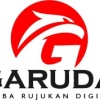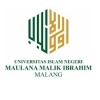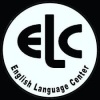Journal of English for Academic and Specific Purposes (JEASP) article publication is periodically published twice a year (June and December). The publication is done in a blind-reviewed process and met with ethical standards in its own editorial policy for those who are responsible for editing, reviewing, and authoring manuscripts-related JEASP integrity publication. It is concerned about the plagiarism or forms of fraud and misconduct in academic publishing. We encourage editorial board and reviewers to strive for the highest standards to be aware of and to meet these challenges and to evolve strategies for coping with them.
To support and promote integrity in research publication, the editorial board and reviewers should ensure themselves adhered to the ethical standards and policies based on the Committee on Publication Ethics (COPE).
These ethical standards and policies are particularly aimed at fostering research and publication integrity.
Ethical Standards
- 1. Responsibility of Journal Contents
The editors must follow standard operating procedures and policies to assure the quality of manuscripts met with the integrity of publication.
- 2. Editorial Autonomy
The editors should play fairly and impartially decide whether manuscripts should be selected and will be published from any particular irrelevant or inappropriate recommended or suggested statements to interfere with publication decisions. The editors, then, rely on their publication decisions based on academic merit alone and must uphold every decision they make.
- 3. Editorial Confidentiality
The editors who have received any manuscripts for review must treat documents confidentially, in which the documents are protected from being shown or discussed with anyone except if the Editor-in-Chief authorises a person under particular circumstances. Therefore, if submitted manuscripts are received by editors, the manuscript’s status will not be shared with others or any indication related to it other than the corresponding authors. The online journal system (OJS) in relation to JEASP must be controlled in a way that prevents unauthorised access.
Similarly, reviewers’ identities stay hidden unless a listed open peer review system. If reviewers, in contrast, intend to disclose names of the corresponding authors, the editors should permit the act of particular reasons. If alleged or suspected reviewer misconduct is found, the editors deserve to discontinue a reviewer’s contract. When a manuscript found in plagiarised version or in the form of above 20% similarity index (in the use of Turnitin.com services) of words, phrases, and/or sentences to other works, the editors must confer with the editorial board to reject it and notify the author. The author must revise the manuscript in a certain given time, or the manuscript will not be published.
Editorial Policies
- 1. Standards of Manuscript Selection
Any objectives and observations in reviews must conform with clear supporting arguments so that authors can improve their manuscript quality based on a reviewer’s or editor’s written recommendation or suggestion. Personal criticism from any parties is considered inappropriate, and it will be unacceptable.
- 2. Disclosure and Conflicts of Interest
When an invited referee who’s his/her interest under conflicts due to relationships with any of the corresponding authors associated with the manuscript and the content described therein must promptly inform the editors to state the conflicts of interest and reject the invitation to review so that the editors can find alternative reviewers.
- 3. Authorship of the Paper
Authors who meet their criteria of authorship must be able to take full responsibility for the content of their manuscript made for relevant contributions to the field of their research, revised it critically to reach the highest quality of intellectual content, confirmed the final determined version, and agreed with its submission for publication. Any related person who contributed essentially to the research reported in the paper, but do not match with the authorship criteria above must not be considered as an author, but should be included into the ‘Acknowledgments’ section after the person’s written permission is stated.
- 4. Acknowledgment of Sources
Authors must be informative when providing a proper acknowledge the others’ work. They should cite publications which have been substantial in deciding the nature of the reported writing. Any essential support contributing to the work either full or half derived from third parties must state an explicit written permission from the source.
- 5. Errors in Published Works
When authors find errors or inaccuracies in their published manuscripts, they are allowed to inform JEASP editors in the form of an erratum or to retract the paper.


















